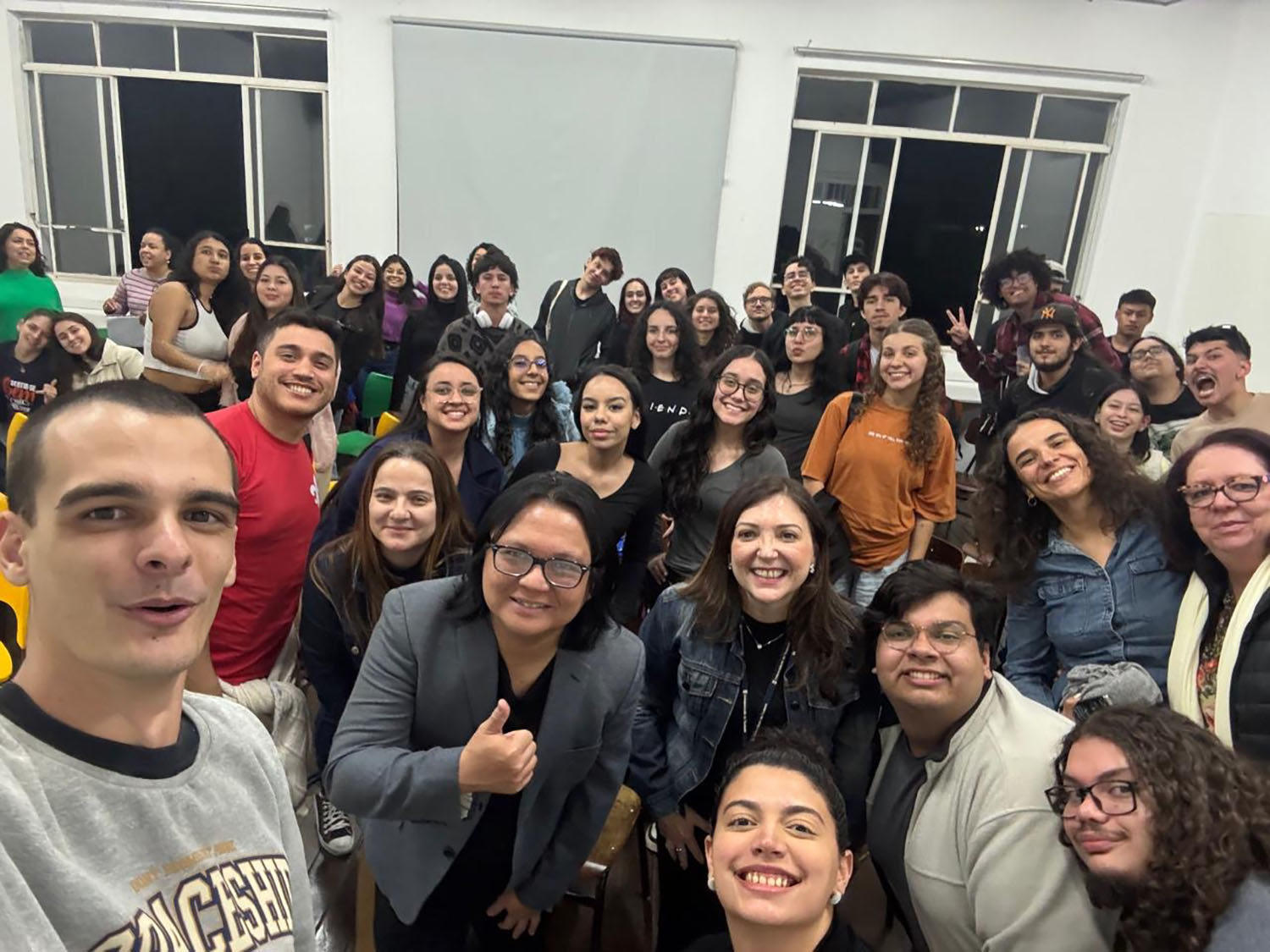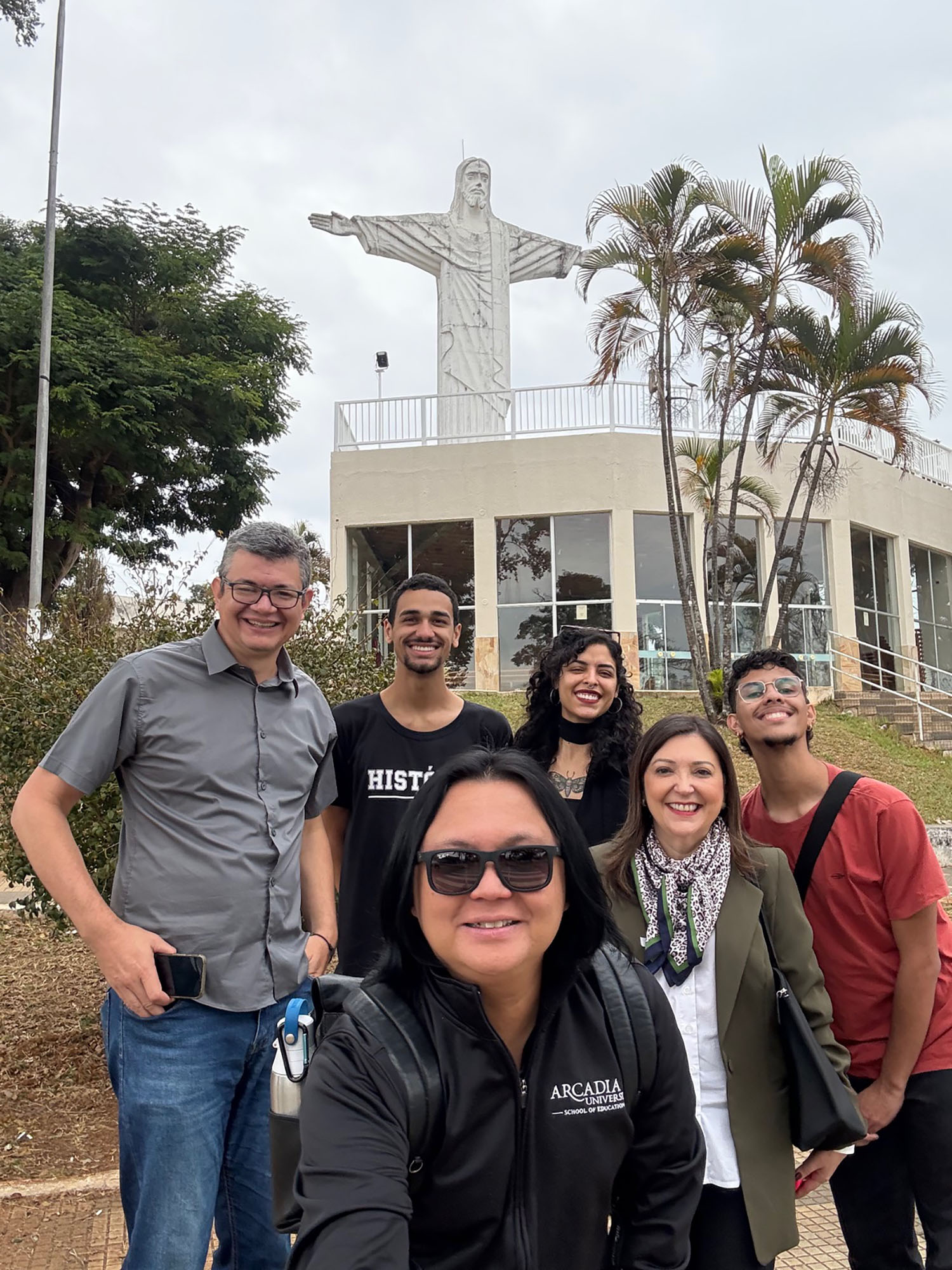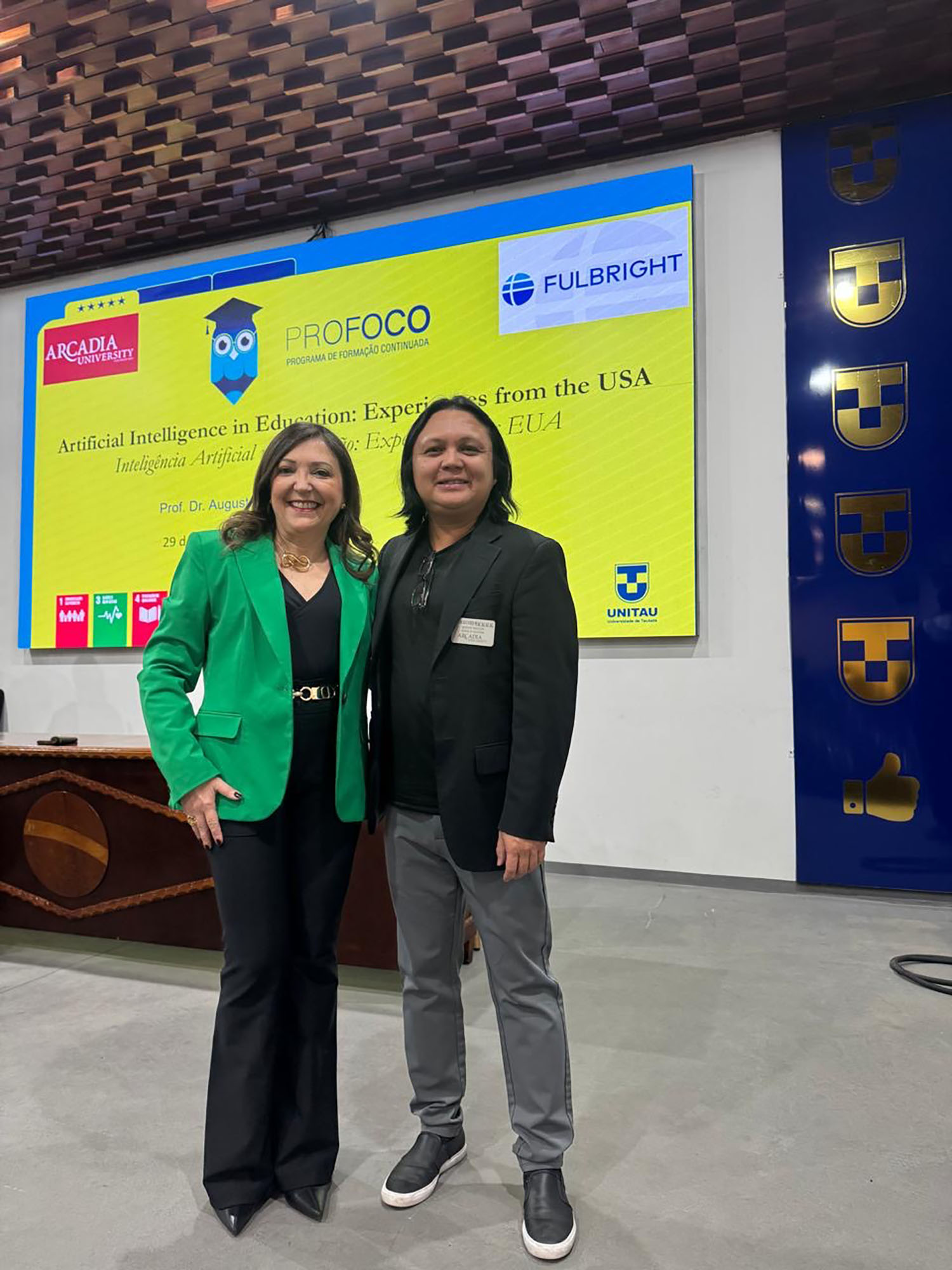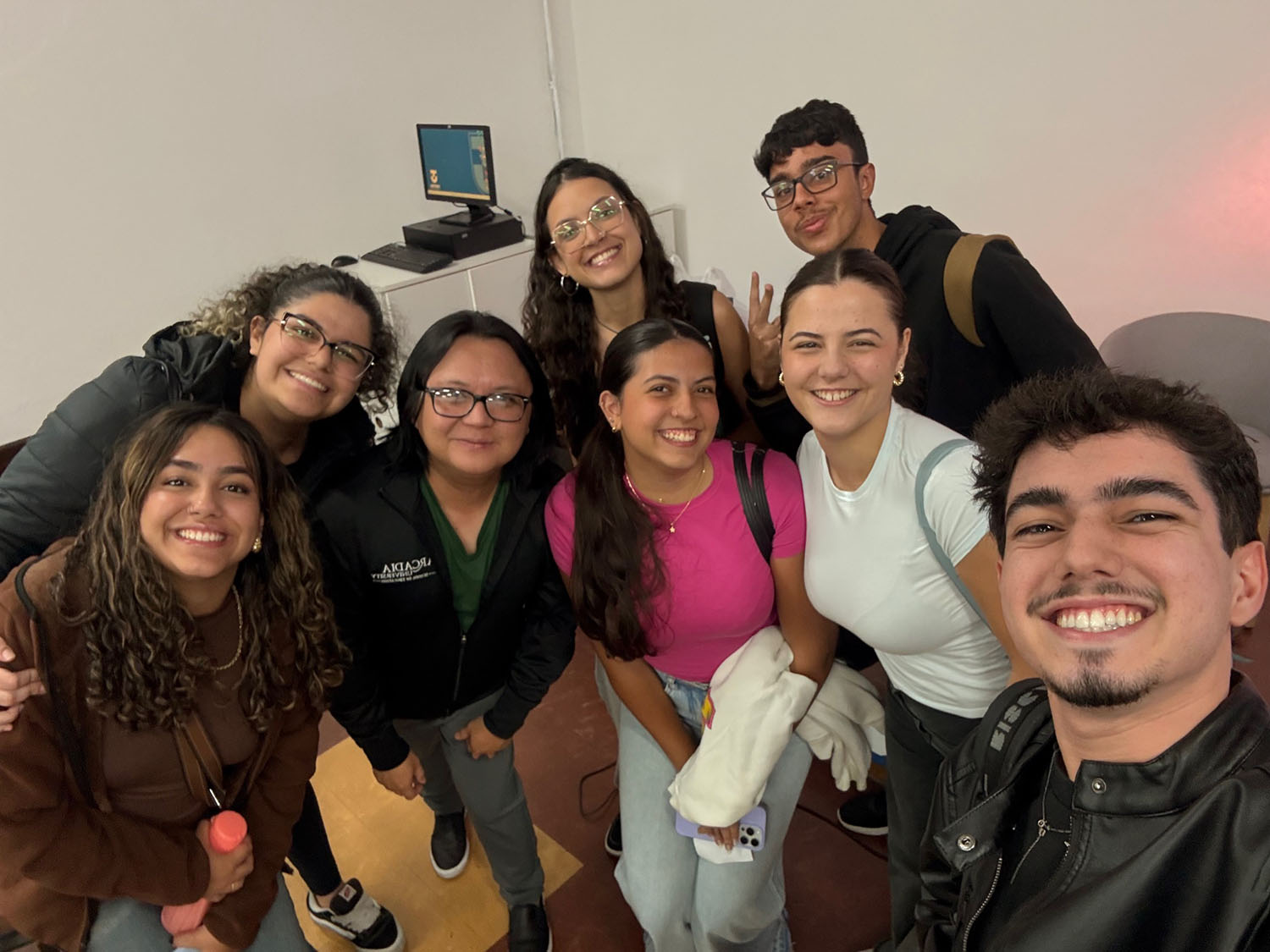From Arcadia to Brazil: A Fulbright Journey in STEM, AI, and Collaboration

Dr. Augusto Z. Macalalag, Jr., associate professor of Science, Technology, Engineering, and Mathematics (STEM) Education, completed a Fulbright Specialist residency at the University of Taubaté (UNITAU) in São Paulo, Brazil. His month-long stay, from late July to late August, brought together faculty, graduate students, and local teachers to explore new ways of teaching and researching through socioscientific issues (SSI) and artificial intelligence (AI).
The residency began with a packed keynote, “Artificial Intelligence in Education: Experiences from the USA,” in which more than 100 UNITAU faculty and staff experimented with tools like ChatGPT, MagicSchool, and Perflexity. Participants used these platforms to build lesson plans, design assignments, and create ethics-based activities. Some even generated a travel itinerary for law students and tested out classroom-ready lesson ideas in real time.
Over the following weeks, Dr. Macalalag led more than fifteen workshops and mentoring sessions across UNITAU’s education, law, environmental studies, humanities, sciences, and regional development programs. In one session, faculty designed units connecting content to local challenges such as energy justice, health disparities, and water access. In another, graduate students used AI to co-develop surveys and analyze research data. Public school teachers joined professional development activities that helped them frame SSI investigations around pressing issues like climate change and the digital divide.


The impact was immediate. Participants left with draft lesson plans, research instruments, and AI guidelines they could take straight into their classrooms. “I can use the active research method and data analysis to create more effective and meaningful learning methodologies,” one participant wrote. Another added, “I learned how to use AI in favor of teaching mathematics.” Several professors stressed the importance of weaving AI into daily practice, not as a shortcut, but as a thoughtful tool for learning.
The residency also opened space for deeper reflection. The faculty raised questions such as “Who should regulate AI?” and “How do we ensure AI helps rather than replaces students’ intellectual work?” Others pointed out systemic challenges, including weaknesses in math education and the need to link pedagogy to broader socioeconomic issues. These candid conversations underscored the urgency of educational innovation.

Beyond the workshops, cultural exchange shaped the experience. Informal meals, campus tours, and everyday conversations built trust and mutual respect. Faculty shared insights about their work in regional schools, while Dr. Macalalag offered examples from Arcadia University’s global field study programs in Florence, London, and Paris. These interactions sparked new ideas for future exchanges. UNITAU faculty expressed a strong interest in joint courses, research projects, and even bringing American students to Brazil in 2027 for a collaborative program on SSI, sustainability, and culture.
For Dr. Macalalag, the Fulbright residency was more than a series of workshops. It was about building connections that bridge continents, expand perspectives, and prepare educators and students alike for a future where science, society, and technology intersect. The residency strengthened UNITAU’s capacity for innovative teaching and research, while laying a solid foundation for long-term collaboration between Arcadia University and UNITAU.

